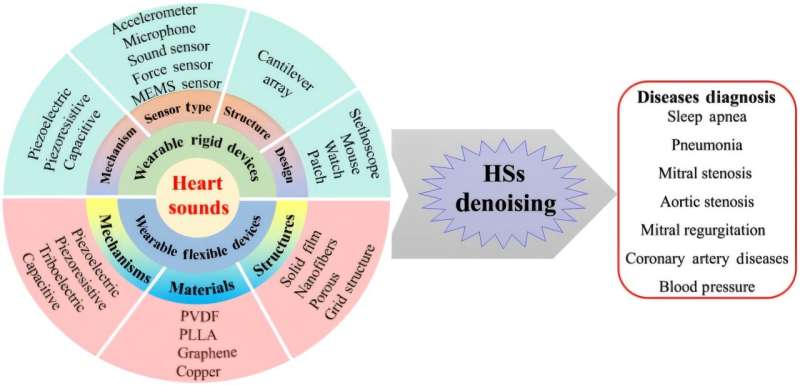Revolutionary Wearable Devices Set to Transform Cardiovascular Disease Management

Tianjin University Researchers Develop Advanced Heart Sound Sensors to Enhance Early Detection and Effective Treatment of Cardiovascular Conditions
[City, Date] - A groundbreaking study published in SmartMat has shed light on the latest advancements in wearable heart sound sensors, revolutionizing cardiovascular disease management by providing continuous, non-invasive monitoring. The research, conducted by researchers from the City University of Hong Kong, highlights the potential of these cutting-edge devices to redefine remote patient monitoring and enable timely interventions.
Wearable technology has emerged as a game-changer in cardiac care, offering real-time insights into heart health that could significantly enhance patient outcomes and healthcare efficiency. However, challenges such as sensitivity, comfort, and data accuracy still hinder widespread adoption.
The study examines the latest advancements in wearable heart sound sensors, encompassing sensor types, material innovations, design principles, denoising techniques, and clinical applications. Researchers have developed mechanoacoustic sensors with soft, flexible designs that prioritize user comfort while maintaining high sensitivity and specificity.
According to Dr. Bee Luan Khoo, Associate Professor at the City University of Hong Kong and one of the review's authors, "Our work on wearable heart sound devices marks a significant step forward in the early detection and monitoring of cardiovascular diseases. These devices have the potential to provide more accurate, real-time cardiac health data, revolutionizing the way we manage and understand heart health."
The researchers' findings emphasize the importance of advanced materials and optimized design principles in addressing challenges related to wearable heart sound devices. Denoising techniques are also highlighted as crucial for accurate heart sound analysis.
These wearable devices have the potential to transform cardiovascular disease management by enabling:
- Personalized healthcare: Wearable devices can provide real-time insights into individual cardiac activity, allowing for personalized treatment plans and more effective interventions.
- Remote monitoring: Continuous monitoring enables timely interventions and reduces the need for hospital visits.
- Improved patient engagement: Empowering patients with proactive control over their heart health can lead to better disease management, reduced mortality rates, and improved overall outcomes.
"The promise of wearable technology in cardiac care signifies a hopeful leap toward a healthier, more informed future," said Dr. Khoo.
This research is published in SmartMat (2024) and is available online at [SmartMat DOI: 10.1002/smm2.1311].
